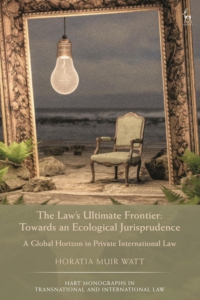Views
New Zealand Court of Appeal allows appeal against anti-enforcement injunction
Introduction
The New Zealand Court of Appeal has allowed an appeal against a permanent anti-suit and anti-enforcement injunction in relation to a default judgment from Kentucky, which the plaintiff alleged had been obtained by fraud: Wikeley v Kea Investments Ltd [2024] NZCA 609. The Court upheld the findings of fraud. It also did not rule out the possibility of an injunction being an appropriate remedy in the future. However, the Court concluded that an injunction could only be granted as a step of last resort, which required the plaintiff to pursue its right of appeal against the Kentucky judgment.
The background to the case is set out in a previous post on this blog (see also here). In summary, the case involved allegations of “a massive worldwide fraud” perpetrated by the defendants — a New Zealand company (Wikeley Family Trustee Ltd), an Australian resident with a long business history in New Zealand (Mr Kenneth Wikeley), and a New Zealand citizen (Mr Eric Watson) — against the plaintiff, Kea Investments Ltd (Kea), a British Virgin Islands company owned by a New Zealand businessman. Kea alleged that the US default judgment obtained by WFTL was based on fabricated claims intended to defraud Kea. Kea claimed tortious conspiracy and sought a world-wide anti-enforcement injunction, which was granted by the High Court, first on an interim and then on a permanent basis. Wikeley, the sole director and shareholder of WFTL, appealed to the Court of Appeal.
The Court of Appeal allowed the appeal against the grant of the injunction. At the same time, it upheld the High Court’s declarations that the Kentucky default judgment was obtained by fraud and that it was not entitled to recognition or enforcement in New Zealand. It also upheld the High Court’s damages award (for legal costs incurred in overseas proceedings in defence of the tortious conspiracy). Read more
Abu Dhabi Court of Cassation on Civil Family Law and Muslim Foreigners: Has the Tide Turned?
Written by Lena-Maria Möller,
College of Law, Qatar University
The recent introduction of a civil family law regime in the United Arab Emirates – the first of its kind in the region – has attracted considerable attention, both on this blog and beyond.[1] A key unresolved issue has been the law’s applicability in Abu Dhabi, particularly regarding access for Muslim foreigners to the emirate’s newly established Civil Family Court. Scholars and legal practitioners navigating this new framework have long observed a surprising discrepancy, if not an ideological tension, between the law’s drafters and those interpreting it, especially at the higher court level. Central to this divergence has been whether Abu Dhabi’s Law on Civil Marriage and Its Effects (Law No. 14/2021 of 7 November 2021, as subsequently amended) and its Procedural Regulation (Chairman Resolution No. 8/2022 of 1 February 2022) apply exclusively to non-Muslims or extend also to Muslim foreigners who are citizens of non-Muslim jurisdictions. A recent judgment by the Abu Dhabi Court of Cassation in late October affirmed jurisdiction over Muslim foreigners with dual French-Moroccan nationality, marking a potential shift in personal jurisdiction. This ruling may expand access to a legal framework devoid of religious underpinnings for many Muslim expatriates in the UAE.
Book review: H. Muir Watt’s The Law’s Ultimate Frontier: Towards an Ecological Jurisprudence – A Global Horizon in Private International Law (Hart)
(Written by E. Farnoux and S. Fulli-Lemaire, Professors at the University of Strasbourg)
 Horatia Muir Watt (Sciences Po) hardly needs an introduction to the readers of this blog. The book published last year and reviewed here constitutes the latest installment in her critical epistemological exploration of the field of private international law. More specifically, the book builds upon previously published fundamental reflections on the methods of private international law already initiated (or developed) in her previous general course (in French) at the Hague Academy of International Law (Discours sur les méthodes du droit international privé (des formes juridiques de l’inter-altérité)), as well as on the contemporary relevance of private international law (“Private International Law Beyond the Schism”). Numerous other works, naturally, also come to mind when reading this book (see among many others, ed. with L. Bíziková, A. Brandão de Oliveira, D. Fernandez Arroyo, Global Private International Law : adjudication without frontiers; Private International Law and Public law).
Horatia Muir Watt (Sciences Po) hardly needs an introduction to the readers of this blog. The book published last year and reviewed here constitutes the latest installment in her critical epistemological exploration of the field of private international law. More specifically, the book builds upon previously published fundamental reflections on the methods of private international law already initiated (or developed) in her previous general course (in French) at the Hague Academy of International Law (Discours sur les méthodes du droit international privé (des formes juridiques de l’inter-altérité)), as well as on the contemporary relevance of private international law (“Private International Law Beyond the Schism”). Numerous other works, naturally, also come to mind when reading this book (see among many others, ed. with L. Bíziková, A. Brandão de Oliveira, D. Fernandez Arroyo, Global Private International Law : adjudication without frontiers; Private International Law and Public law).
The publication of a book on the field that this blog deals with would be enough to justify it being flagged for the readers’ attention. We feel, however, that its relevance to our academic pursuits warrants more than a mere heads-up and, while it would be unreasonable (and risky) to try to summarize the content of this engrossing and complex book in a blog friendly format, we would like to make a few remarks intended to encourage the readers of this blog to engage with this innovative and surprising work.
News
Where do Children Reside? Where they are “at Home”
The Supreme Court of Canada has released its reasons for dismissing the appeal (which it did orally on December 9, 2024) in Dunmore v Mehralian, 2025 SCC 20. The narrow issue was the meaning of “habitual residence” for a child in the statutory context of the Children’s Law Reform Act (Ontario). The SCC had earlier explained that a hybrid approach to the meaning of habitual residence is to be used under the Hague Convention: Office of the Children’s Lawyer v Balev, 2018 SCC 16. In the convention, there is no definition of habitual residence. In contrast, the CLRA does provide elements of a definition of habitual residence (in s 22) though it leaves “resides” undefined. This generated the issue: under the statute, does the same hybrid approach apply or is the definition different because of the statute?
AMEDIP’s upcoming webinar: WIPO Expedited Arbitration on 26 June 2025 (in Spanish)

The Mexican Academy of Private International and Comparative Law (AMEDIP) is holding a webinar on Thursday 26 June 2025 at 14:30 (Mexico City time – CST), 22:30 (CEST time). The topic of the webinar is WIPO expedited arbitration: ADR and ODR in the era of technology disputes, videogames and e-sports and will be presented by Kiyoshi Tsuru and Óscar Suárez (WIPO) (in Spanish).
Public Review: New UN Economic Committee for Europe White Paper on Digital Product Passports & Critical Raw Materials for Batteries: Legal Conflicts and Principles for Cross-Border Cooperation
Legal fragmentation slows down the scaling up of the Critical Raw Materials-battery value chains to meet the demands of the green transition. Digital Product Passports (DPPs) should serve as an effective digital traceability tool for business compliance, rather than creating a green barrier.
UNECE and UN/CEFACT are proud to release our White Paper for public review, offering a deep dive into:


